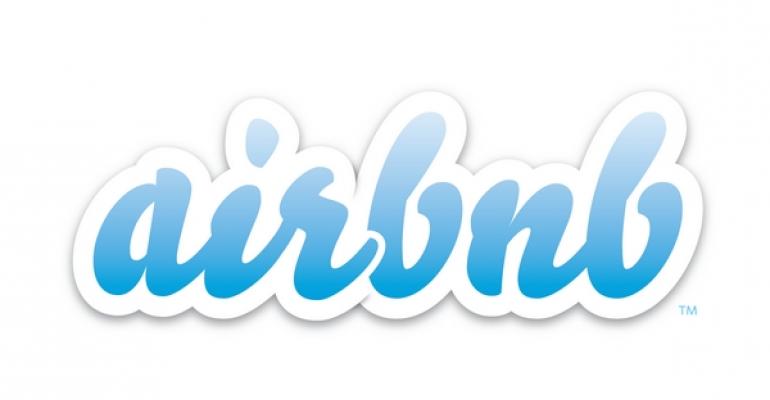Hotels are well aware of the rise of Airbnb, the Web site for people renting out rooms and homes and the people looking to book those accommodations. (With the possible exception of The Ritz-Carlton Hotel Co., that is, whose vice president of leadership and hospitality training told a Fast Company reporter she'd never heard of Airbnb.)
While articles about Airbnb like to compare the number of accommodations it lists (at last count, more than 600,000) to the number of rooms in the world’s largest hotel chains (IHG is currently at 687,000), it’s obviously not an apples to apples comparison.
Airbnb accommodations lack front desks, housekeeping, loyalty programs—and, for our interests, meeting space, F&B, and audiovisual equipment.
But some of that is coming.
Airbnb hired a hospitality executive—Chip Conley, founder of the Joie de Vivre boutique hotel chain—as its head of global hospitality, and with $450 million in new funding, the company is setting about creating a more consistent hospitality experience for guests. A first step, as reported in Fast Company, is the launch of a cleaning service that will provide fresh sheets and towels to the room and apartment owners.
And because the site is attracting more business travelers, it’s easy to imagine Airbnb targeting them with special services or accommodations for the segment.
Ready for CVBs to Start Promoting Airbnb?
The argument that Airbnb hosts should pay taxes has undergone a reversal in the hospitality community lately, with the Hotel Association of New York City, for example, saying it opposes efforts to tax Airbnb because it would give "legitimacy to their business." Indeed, in a blog post at HotelNewsNow this week, STR’s Jan Freitag, senior vice president, strategic development, laid out a potential scenario: “Once Airbnb starts to pay lodging taxes, then occupancy-tax funded [destination marketing organizations] will have to promote it equally to all their other hotel members. DMOs are in the business of promoting the destination, but on their Web sites, hotels and Airbnb inventory will have to be listed side by side.”
Generation Gap
Certainly the sharing economy, of which Airbnb and the car service Uber are a part, is something that the millennial generation is more comfortable with and more aware of—and this generation is making up more and more of the workforce and representing a greater percentage of attendees at your meetings.
There are some in this group who would prefer to investigate Airbnb’s local offerings rather than book the headquarters hotel you’ve negotiated for your room block. In fact, in his HotelNewsNow piece, Freitag even suggests that the milliennial procurement director of the future may require it!
When our own blogger Sue Pelletier wrote about Airbnb as a threat to room blocks, the blog prompted lots of reader comments. Check them out and add your own.
Of course, the sharing economy will continue to expand. Thomas Friedman wrote in The New York Times about Airbnb having created its own “ecosystem—ordinary people who will now come clean your home, coordinate key exchanges, cook dinner for you and your guests, photograph rooms for rent, and through the ride-sharing business Lyft, turn their cars into taxis to drive you around.”
It’s easy to imagine this ecosystem growing to include local event planners and producers, destination management companies, or perhaps local theater owners. Then things will really get interesting.
And by the way, there’s already breather.com, a space-sharing site with the promise: “Access beautiful private spaces where you can meet, work or relax.” (So far just in Montréal and New York—coming soon to San Francisco and other cities.)






